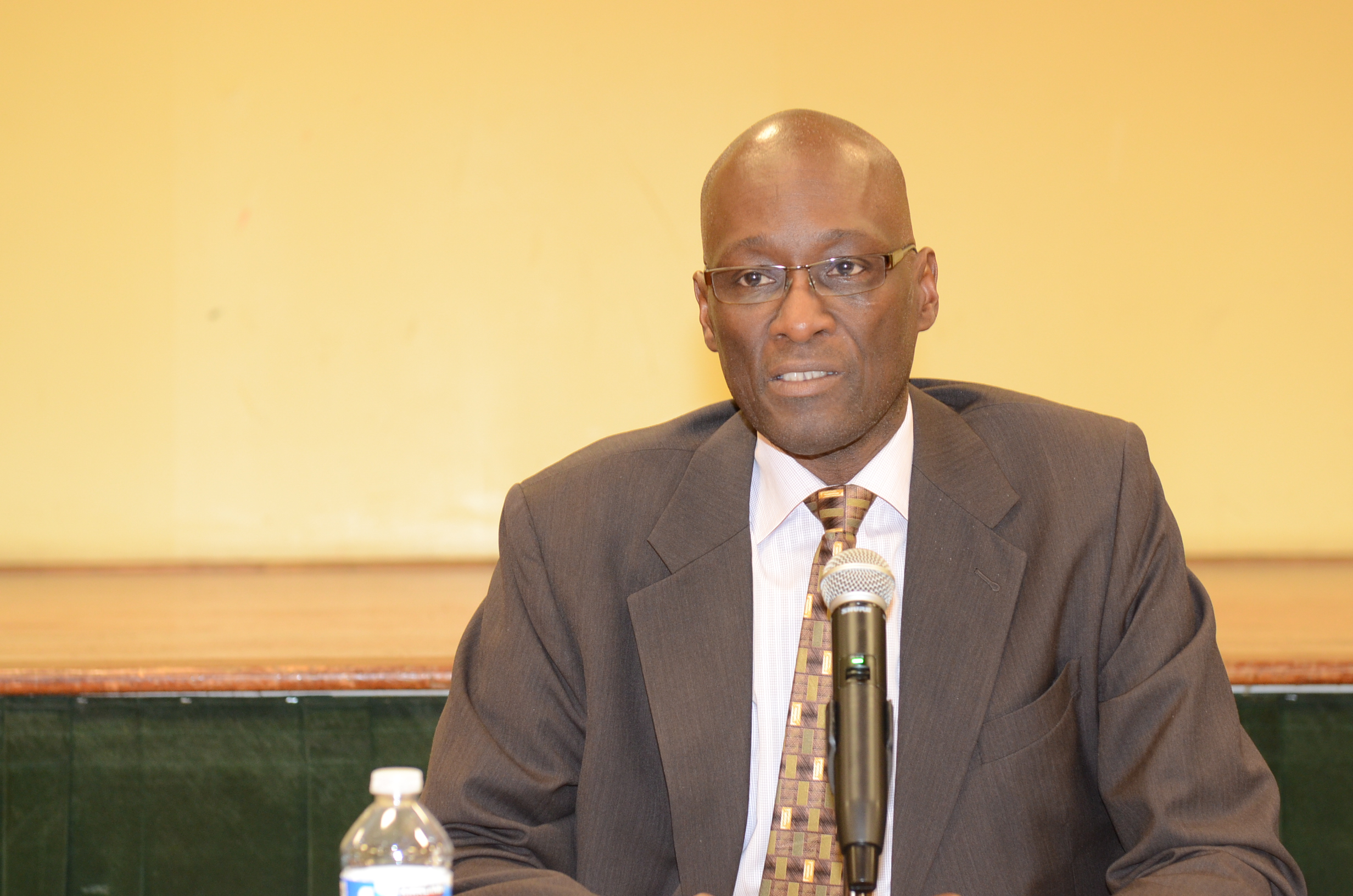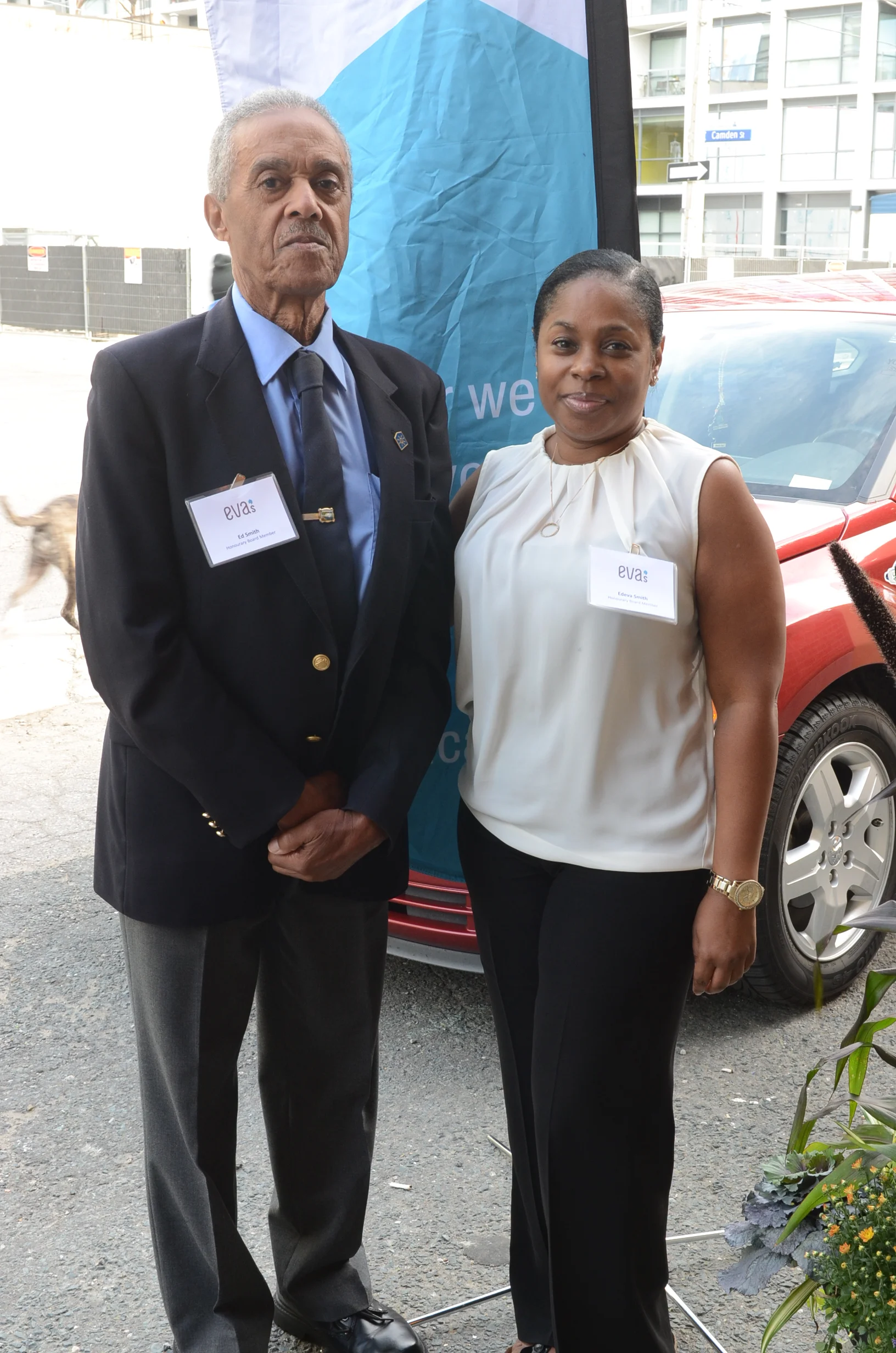Ex-Star columnist Royson James looks to the future
Journalists should never become part of the story they are reporting. Sometimes, however, there’s an exception as retired Toronto Star award-winning municipal affairs columnist, Royson James, found out a few years ago.
In 1991, Opal Austin, a Jamaican, sent two of her seven children to Canada for a better life. They were entrusted in the care of their father and stepmother who Austin assumed would care and nurture them.
Just a year after arriving in the Greater Toronto Area (GTA), Dwayne Biddersingh fell to his death from his family’s 22-storey Parkdale balcony. The death was deemed a suicide. His older sister, Melonie Biddersingh, died three years later. Her charred body was discovered in a burned suitcase in York Region and investigators determined the then 17-year-old had been tortured prior to her death. It took a tip 17 years later for Toronto Police to identify the girl.
“When I heard about the story and the conversation on talk radio about how this woman could send her children off to Canada and not know about their whereabouts, I took offence to that because I know this happens frequently as a way of getting people out of the ghetto and giving them opportunity,” said James who retired at the end of September after 35 years with the Toronto Star. “That story resonated with many of us who were raised by a relative.”
While in Jamaica four years ago on assignment, he tracked down Austin and her family in Kingston.
“There is a former Jamaican police officer who was suspicious about Dwayne’s death and urged police to dig a bit deeper,” said James who left Jamaica in 1969 at age 16 to join his father and stepmother. “He was in contact with Toronto Police, so I was able to get his information from them and reach out to him when I landed in Jamaica.”
James recounted being smitten by Austin and her family when he met them.
“This is a normal everyday family struggling through great odds and the mom saw sending two of her children to Canada as an opportunity to give them a better life,” he said. “That decision blew up in her face. I still remember showing up at her place with the photographer the Toronto Star had sent, and her pointing to a spot and saying, ‘is here me raise them you know, me seven pikney them’. What she was pointing at was the space the size of my bathroom and she just stood there and wept. At that point, it became more than just a story. I had to introduce her to readers of the Toronto Star and whatever happened, I had to be there for them.
“They were looking for an explanation as to what happened. This was evident as I interviewed Opal along with her daughter and son. They had never left Jamaica. It was like someone threw them a lifeline and said ‘here is your way out to get the truth’. I couldn’t forget them and I couldn’t treat this as just another story. After I returned to Canada, they kept calling me for information regarding the trial. I became their lifeline.”
Austin and her daughter, Racquel Ellis, attended the trials of Everton Biddersingh – the father of the deceased children – and their stepmother, Elaine Biddersingh who were found guilty of first and second degree murder, respectively.
Austin testified in both trials and stayed for a few days at James’ family residence during the first trial.
“You don’t want to be the story, but there are certain times as a journalist, you can’t turn your back,” he said. “This was one of those instances.”
Journalism wasn’t at the top of James’ career choice list growing up in western Jamaica.
“I thought I was going to do medicine, but I wasn’t good in calculus, chemistry didn’t agree with me and I couldn’t figure out physics,” he said. “I was however good in English and Literature, so it was a natural marriage.”
His passion for reading the 182-year-old broadsheet, Jamaica Gleaner also helped to influence James’ decision to become a journalist.
“That is still one of the great newspapers, particularly the Sunday edition and whenever I go to Jamaica, I pick up a copy,” he said. “It’s dynamic and rich with a variety of opinions.”
A Cornwall student, James completed high school at Harbord Collegiate Institute after spending a day at Central Technical School.
“Central Tech was too big for me,” he said. “When I went home and told my dad I didn’t like it there, he took me to the Board of Education and they said I could enroll in nearby Harbord. What I didn’t realize at the time was that the Black students were sent to Central Tech.”
After graduating from Andrews University in Michigan, James spent two years with the now defunct Contrast community newspaper before joining the Toronto Star in 1981.
“Contrast’s office was a community hub and a clearing house in that community members were always constantly calling for information,” he said. “The only number they seemed to know was ours and we would get calls for social service and government agencies’ phone numbers. We also got calls from citizens claiming they were beaten by police. Contrast was also the place where leaders like Bromley Armstrong and the late Wilson Head and Al Mercury would meet to plot strategies that would benefit their community. You really got a sense that this place mattered to the community. It was truly the ears, voice and eyes of Canada’s Black community.”
Starting as a reporter covering municipal politics in Scarborough, North York and Toronto before amalgamation, James was the Toronto Star’s city hall bureau chief and an editorial board member before becoming the municipal affairs columnist in 1998.
In his long and distinguished career with the mainstream newspaper, James travelled extensively. He visited several waterfront cities around the world after then mayor Mel Lastman launched an initiative to revitalize Toronto’s waterfront and spent three weeks in Sydney during the 2000 Summer Olympics.
“I covered the Games from the standpoint of what a city looks like during the Olympics,” he said. “It’s the only (international) city I have been to that I felt I was in Toronto.”
James also travelled to Ghana and England in 2007, the bicentennial of the abolition of slavery.
He said his trip to the West African nation, the first sub-Saharan country in the region to achieve independence in 1957, was life-changing.
“Two days after visiting the slave dungeons, the group that I went with sat under a mango tree and we shared our experiences,” he said. “People cried, bawled and howled. A reporter is supposed to be objective, but I failed. That was very moving and when I came back to Canada, I started to write about Black issues with a stronger voice.”
James was at Westminster Abbey when social rights activist and filmmaker, Toyin Agbetu, disrupted a service attended by Queen Elizabeth and then British Prime Minister, Tony Blair, to mark the bicentenary of the 1807 act to abolish the slave trade.
Married since 1976 with four children, James – who co-founded the Rexdale Outreach Choir in 2008 after teenager Amon Beckles was fatally shot outside the Toronto West Seventh-day Adventist Church during the funeral service of Beckles’ friend, Jamal Hemmings who was also the victim of senseless gun violence – plans to spend more time gardening and working with young people.
Baptized in 1963, he also heads the Cassiopeia Pathfinders Club whose members engage in community service, learn survival skills and are trained in first aid and emergency preparedness.
The author of a series of articles in 1988 on being Black and White in Toronto and a key contributor to the Star’s campaign in 2002 for a new deal for Canadian cities, including Toronto which was forced to assume responsibilities formerly held by the province, James will write a weekly Saturday column for the Toronto Star, starting on November 5.






